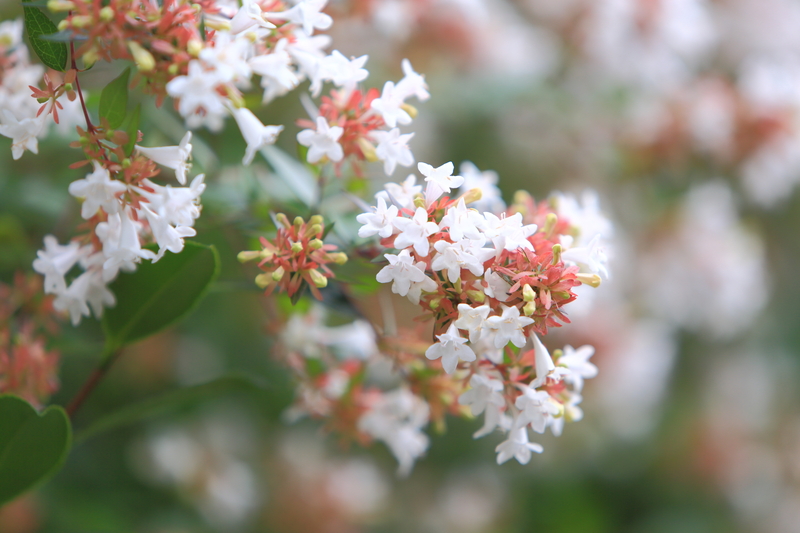Elevate Your Gardening Skills with 3 Weed Control Tips
Posted on 09/06/2025
Elevate Your Gardening Skills with 3 Weed Control Tips
Welcome to your journey towards a lush, healthy, and hassle-free garden. Weed control is essential for every green thumb. If you desire an impeccable landscape or a bountiful vegetable patch, learning effective techniques for weed suppression can make all the difference. In this comprehensive guide, we share the top three tips for weed control that will help elevate your gardening skills and ensure your outdoor oasis thrives all season long.

Why Weed Control is Crucial for Gardeners
Unwanted weeds are more than just an eyesore. They compete with your plants for water, light, and nutrients. Unchecked, they can choke out your favorite flowers or vegetable crops, lowering your yield and impacting garden aesthetics. Regularly managing weeds not only keeps your landscape attractive but also guards your investment of time, money, and effort.
#1: Mulching - Nature’s Blanket for Superior Weed Suppression
One of the most effective techniques to control garden weeds is mulching. This simple yet powerful practice involves covering the soil surface with an organic or inorganic material to prevent weeds from taking root and spreading.
How Does Mulch Help with Weed Control?
- Blocks sunlight: Mulch acts as a shield, stopping weed seeds from getting the sunlight they need to sprout.
- Prevents weed seed germination: By maintaining an even soil temperature and moisture level, mulch discourages weed seeds from germinating.
- Improves soil health: Organic mulches (like straw, wood chips, or compost) break down over time, enriching the soil and benefiting your plants.
Best Practices for Weed-Blocking Mulch
- Apply 2-4 inches of mulch around your plants and over bare soil--just make sure not to smother stems or trunks.
- Refresh the mulch layer annually to maintain effectiveness.
- For maximum weed suppression, combine mulch with a landscape fabric barrier underneath, especially in ornamental beds.
Remember: Not all mulches are created equal. Avoid using hay or un-composted grass clippings, as they may contain weed seeds of their own.
#2: Smart Planting - Outcompete Weeds with Density and Timing
Did you know you can use strategic planting as a natural weed control tip? By choosing the right plants, planting at the right time, and using dense layouts, you can reduce the space and resources available to weeds.
Dense Planting Techniques
- Plant closely: Reduce space between plants to create a living ground cover that shades out weeds.
- Use ground covers: Low-growing perennials like creeping thyme, sweet woodruff, or ajuga serve as living mulch, smothering weed seedlings.
- Favor vining vegetables (such as squash or pumpkins) for large gaps--these will quickly cover open soil and diminish weed growth.
Smart Crop Rotation & Succession Planting
- Rotate crops annually to prevent a build-up of weed species attracted to specific plant families.
- Prompt replanting: Once you harvest a crop, immediately sow another to keep the soil covered and minimize bare patches where weeds thrive.
By purposefully planning your garden layout and timing, you minimize weeding chores and let your cultivated plants do the heavy lifting.
#3: Proactive Maintenance - Consistent Effort Yields Big Results
While prevention is best, no garden is completely immune to weeds. That’s why the final of our top weed control tips focuses on proactive, consistent garden management. By staying ahead, you keep your space pristine and prevent small weeds from becoming a major headache.
Best Maintenance Practices for Weed Reduction
- Weed regularly: Remove weeds as soon as you spot them. Small weeds are easier to pull, and doing so before they seed prevents future infestations.
- Hand-weeding vs. hoeing: For annual weeds, light hoeing just below the soil surface is effective. For perennials, pulling out the entire root by hand is essential to stop regrowth.
- Water wisely: Use drip irrigation or water close to desired plants. Sprinklers can encourage weed growth by watering bare areas.
- Edge your beds: Physical barriers or edging materials keep grass and creeping weeds out of flower beds.
When to Weed for Maximum Results
- Focus on weeding after rain, when soil is loose and roots pull easier.
- Prioritize early spring and late summer before weeds set seed.
- Monitor high-risk areas--around compost piles, fence lines, and garden paths.
Tip: Invest in quality weeding tools such as a stirrup hoe, long-handled fork, or specialized hand weeders to make the job less taxing.
The Secrets Behind Long-Term Weed Control Success
Now that you know the three major ways to control weeds in your garden, let's reinforce some long-lasting strategies to keep your growing space beautiful:
- Never let weeds go to seed: One weed can quickly turn into thousands. Remove flowering or seeding weeds promptly.
- Monitor new plantings: Many weed outbreaks occur with new soil, compost, or transplants. Watch new beds carefully for emerging weeds.
- Stay persistent: The first year of weed control is the hardest. Stick with your routine and you'll see marked improvements every season.
Common Weed Mistakes to Avoid
- Ignoring the problem: Waiting too long to take action will result in a bigger weeding job later.
- Shallow weeding: Many perennial weeds will regrow from root fragments. Always remove as much root as possible.
- Using contaminated mulch: Make sure mulch or compost is weed-free before spreading in your garden.
Frequently Asked Questions About Weed Management
Can I use natural herbicides?
Yes, there are various organic weed control methods, such as vinegar-based sprays or boiling water, but these generally work best on small, green weeds and can damage desirable plants if applied carelessly. Always spot test before widespread use.
Are weed barriers or landscape fabrics effective?
These physical weed control solutions can be very useful--especially alongside mulch in ornamental beds. However, they don't eliminate the need for monitoring; over time, weeds can take root in the mulch layer or along edges, so vigilance is still required.
How do I control weeds in lawns?
Keep lawns thick and healthy with proper mowing, fertilization, and watering. Overseed thin areas annually. For persistent weed invasions, choose selective herbicides or manual removal, depending on your preference for natural vs. synthetic approaches.
Additional Organic and Eco-Friendly Weed Control Tips
- Try solarizing bare soil with clear plastic to kill weed seeds using the sun's heat before planting.
- Maintain healthy soil with regular compost additions; healthy, vigorous plants outcompete weeds.
- Consider introducing natural predators (like ducks or geese in larger homesteads) to consume certain weed species.
- Plant cover crops in fall or early spring to cover soil, suppress weeds, and add green manure when turned under.

Conclusion: Take Charge of Your Garden's Future
A beautiful, productive garden starts with effective weed management. By combining mulching, smart planting, and regular maintenance, you'll not only elevate your gardening skills but also ensure your garden remains a sanctuary for years to come. Remember, the keys to weed control success are consistency, vigilance, and a willingness to adapt your approach as you learn what works best in your unique environment.
Ready to reclaim your garden from pesky invaders? Implement these three weed control strategies today, and watch your plants--and your gardening confidence--thrive!
Summary: Weed Out the Competition for a Flourishing Garden
- Mulch smartly to stop weeds before they start.
- Plant densely and take advantage of living ground covers.
- Maintain regularly to keep your garden pristine and productive.
By following these proven weed control tips, you'll spend less time weeding and more time enjoying your beautiful garden.
Latest Posts
Building Your Garden's Defenses Against Strong Winds
Creating the Perfect Habitat for Your Orchids
Transform your space with 9 fast-growing hedges for privacy
Innovative Ways to Develop Charming Garden Seating Spaces
Eco-Friendly Gardens: Silent Warriors Against Climate Change

